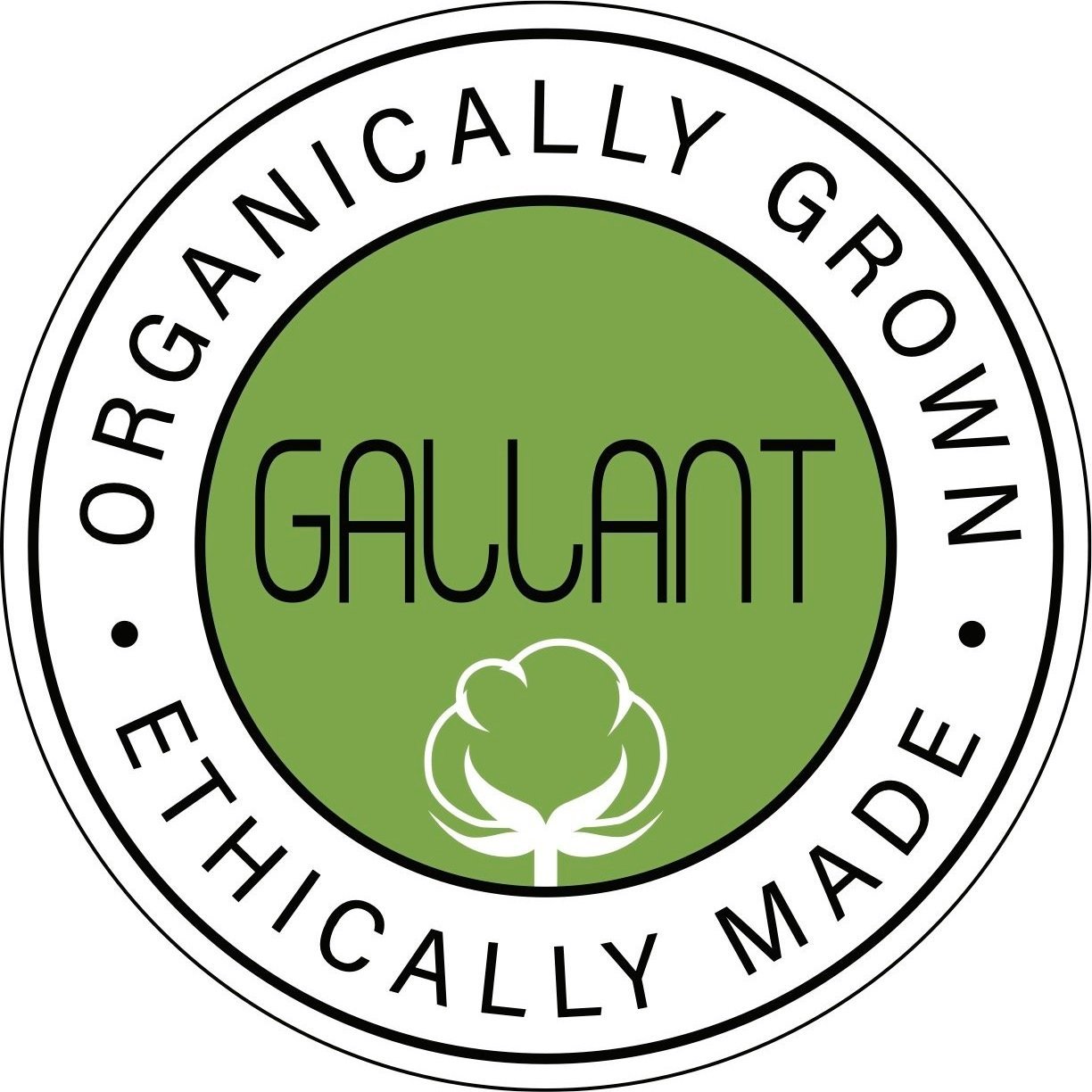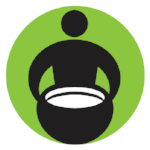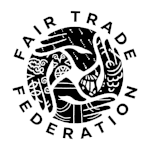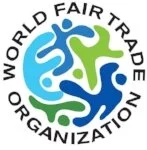The ultimate guide to all fair trade labels and what it means.
Table of Contents
Fair Trade labeling means the products are made according to rigorous social, environmental, and economic standards.
Fair Trade as a labeling movement has achieved enormous accolades in recent years. Global sales of Fair Trade certified products have reached over 8 billion Euros (according to statista.com) and there are currently over 10,000 Fair trade certified products available on the market in over 70 countries. To respond to these immense sales volumes, many non-profit certifying organizations have sprouted up around the world to ensure that the standards of Fair Trade, the heart of the movement, are all being upheld and closely monitored. This ensures that producers and artisans are receiving fair wages and increased economic livelihoods. Gallant International Inc. specializes in Fairtrade bags and accessories such as custom canvas tote bags and custom drawstring bags.
With so many different players in the Fair Trade market comes different approaches to producer welfare and direct trade relationships, as well as diverse criteria and definitions of what ‘fair’ actually means in the local context. As each upstream relationship with raw materials is unique and complex, different needs emerge that need to be supported by different sized certifiers with different foci and visions of inclusive trading relationships.
With that in mind, we at Gallant wanted to explain succinctly the difference between each of the 4 predominant certifying organizations, what their approach to Fair Trade is and how that shifts their definition of what criteria meet the standards of a Fair Trade label. Throughout this conversation, our hope is that you have a clearer understanding of what Fair Trade is and why it is such an impactful method of conducting business. Gallant International Inc. specializes in fair trade certified bags, muslin bags, t-shirts, wholesale cosmetic bags, and more.
Fair Trade USA
https://www.fairtradecertified.org/
One of the largest certifiers in the world, Fair Trade USA is an independent, nonprofit organization that sets standards, certifies, and labels products that promote sustainable livelihoods for farmers and workers. They operate using both a for-profit and non-profit business model working with large-scale farms, fisheries, and factories worldwide. On average, 75% of Fair Trade USA’s revenue is derived from income earned from over 1,1000 business partners that pay to use the Fair Trade Certified™ label. Fair Trade USA works with these brands to ensure that the products they offer comply with the rigorous Fair Trade standards, which helps consumers to purchase their way to a better world, simply by looking for the label on the products they buy.
The remaining 25% is contributed revenue from individuals, foundations, and corporations who partner with Fair Trade USA to invest in innovation, growth, and impact. Their mission is to enable sustainable development and community empowerment by cultivating a more equitable global trade model that benefits farmers, workers, consumers, industry and the earth.
Fair Trade USA started as a certifier in the 1980’s working with Central American coffee cooperatives and have expanded their model to include much larger farms so they can create an impact on a larger level. They are currently shifting their focus to include farms located in the United States so they can improve the livelihoods of migrant farmers and their families. Our custom printed cosmetic bags are Fair Trade factory Certified.
Their definition of Fair Trade:
Fair Trade is a global movement made up of a diverse network of producers, companies, shoppers, advocates, and organizations putting people and planet first. A choice for Fair Trade Certified™ goods is a choice to support responsible companies, empower farmers, workers, and protect the environment. In other words, it’s a world-changing way of doing business.
Fair Trade standards according to Fair Trade USA include:
Access to basic services like clean water education and healthcare
Fundamental human rights
The right to safe working condition
Sustainable production and farming practices
Improved working conditions
Better prices and wages for farmers and workers
Transparent trade practices
Fairtrade prohibits child labor, forced labor, GMOs, and encourages environmentally-friendly production such as organic cotton bags.
Additionally, Fair Trade USA includes collective bargaining and Fair Trade social premiums in addition to Fair wages in their model, which set this organization apart from many other certifiers. Fair Trade premiums are amounts in addition to wages that go to a social fund that the producer community must then determine how to allocate.
Fairtrade America
http://www.fairtradeamerica.org/
Fairtrade America is an independent non-profit organization associated with the international Fairtrade system. They work directly with companies, consumers and campaigners to secure a better deal for farmers and workers by representing the global FairTrade movement in America. Fairtrade is the world's largest and most recognized fair trade system and consists of three producer networks, Fairtrade International, 32 Fairtrade organizations, and FLOCERT, the independent certification body for Fairtrade.
(Fairtrade is not trademarked by Fairtrade America and is such identified as a separate brand from Fair Trade USA, who do not use FLOCERT to certify their products.)
Their definition of Fairtrade:
Based on transparency, respect, and dialogue, Fairtrade is a trading partnership that works to make international trade fairer. Fairtrade secures the rights of and offers better trading conditions to marginalized farmers and works in the Global South, thus contributing to sustainable development.
Fairtrade America’s 4 key areas of activity include:
· Providing independent certification of the product supply chain through FLOCERT. Fairtrade America does not certify any products themselves, instead, they license the use of the FAIRTRADE Mark, which appears on a product as assurance for consumers that the product meets the internationally agreed Fairtrade Standards.
· Helping grow demand for Fairtrade products and empowering producers to sell their goods in the United States.
· Working with businesses and nonprofit organizations to support producer organizations and their networks.
· Raising awareness of the needs of small-scale farmers and workers in developing countries and supporting efforts to make trade fair.
The Fairtrade International standards:
Governance is important. In Fairtrade, farmers and workers have 50% of the vote in the General Assembly, four seats on the board of Fairtrade International, and representation on the Standards Committee that approves changes to the standards, minimum prices and premiums.
The Fairtrade Minimum Price applies to most Fairtrade products and acts as a safety net for farmers and workers when prices fall below a sustainable level. The minimum price aims to cover the costs of sustainable production and is established by Fairtrade International through an intensive consultation process with producers, traders, and other stakeholders.
On top of the purchase price for the raw product, producer organizations receive a Fairtrade Premium for sales on Fairtrade terms. This amount is paid directly to the producer organization whose members decide how to best invest it to improve their community, business or local environment. For farmers, the Fairtrade Premium can mean improving their business or productivity, helping them transition to organic production, supporting local schools or improving healthcare. Workers will often invest in better housing for community members, access to education and much more. We believe that farmers and workers know best what their communities need, which is why Fairtrade gives farmers and workers the ability to invest the premium as they see fit.
Fair Trade Federation
http://www.fairtradefederation.org/
The Fair Trade Federation is an association that strengthens and promotes North American organizations fully committed to fair trade as a membership organization of businesses who practice 360° fair trade. These members are companies that have made a full commitment to fair trading practices – each and every business decision is made with the well-being of artisans and farmers in mind. This commitment runs deep and represents a high bar of fair trade. By using standards set by FLO and the World Fair Trade Organization, the Federation ensures that its members are upholding fair trading practices through audits.
The Fair Trade Federation traces its roots to the late 1970s when individual alternative trade organizations began holding yearly conferences for groups working in fair trade. In 1994, the group incorporated formally as the North American Alternative Trade Organization (NAATO); and, the following year, changed its name to the Fair Trade Federation. Since then, FTF has focused on supporting fully committed businesses in order to expand markets for artisans and farmers around the world. The Federation has been an active member of the World Fair Trade Organization (formerly IFAT) for many years. We at Gallant offer Fairtrade cotton reusable produce bags and mesh produce bags.
Their definition of Fair Trade:
Fair trade is an approach to business and to development based on dialogue, transparency, and respect that seeks to create greater equity in the international trading system. Fair trade supports farmers and craftspeople in developing countries who are socially and economically marginalized. These producers often face steep hurdles in finding markets and customers for their goods.
Their principles:
Develop Transparent and Accountable Relationships
Build Capacity
Promote Fair Trade
Pay Promptly and Fairly
Support Safe and Empowering Working Conditions
Ensure the Rights of Children
Cultivate Environmental Stewardship
World Fair Trade Organization
The World Fair Trade Organization is a membership organisation of over 400 Fair Trade enterprises and the organisations that support them. As a global network, the Organization is supported by five regional branches in Africa & the Middle East, Asia, Europe, Latin America, and North America & the Pacific Rim, through their respective offices. The office in Culemborg, the Netherlands, coordinates the activities of WFTO worldwide. WFTO also works closely with several country networks that support Fair Trade.
Several of their key activities include:
Setting the Fair Trade standards
Market Access
Voice and Advocacy efforts
Creating a Global network of Fair Trade organizations
Their definition of Fairtrade:
"Fair Trade is a trading partnership, based on dialogue, transparency, and respect, that seeks greater equity in international trade. It contributes to sustainable development by offering better trading conditions to, and securing the rights of, marginalized producers and workers – especially in the South.
Fair Trade organisations have a clear commitment to Fair Trade as the principal core of their mission. They, backed by consumers, are engaged actively in supporting producers, awareness raising and in campaigning for changes in the rules and practice of conventional international trade." They can be recognised by the WFTO logo.
Their Principles:
Principle One: Creating Opportunities for Economically Disadvantaged Producers
Principle Two: Transparency and Accountability
Principle Three: Fair Trading Practices and cultural identity
Principle Four: Fair Payment, Fair Prices, Fair Wages
Principle Five: Ensuring no Child Labour and Forced Labour
Principle Six: Commitment to Nondiscrimination, Gender Equity and Women’s Economic Empowerment, and Freedom of Association
Principle Seven: Ensuring Good Working Conditions
Principle Eight: Providing Capacity Building
Principle Nine: Promoting Fair Trade
Principle Ten: Respect for the Environment
We hope that this helps give you a better understanding of the breadth and depth of the Fair Trade ecosystem. Please contact us with any questions you have about how these organizations interact with each other or if you have specific questions about Fair Trade in your country!
Stay tuned next week for a conversation on the differences between Fair Trade and direct trade, and the benefits and drawbacks of each system for producers and consumers. Looking to buy fair trade backpacks then Terra Thread sustainable backpacks are your best choices.




